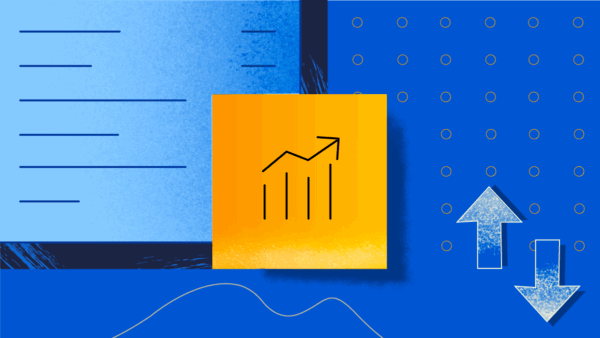Understanding Cash Flow: Secrets to Boosting Your Business Finances
Cash flow is the lifeblood of every business. Whether you’re a small business owner or managing a growing enterprise, understanding your cash flow is essential for sustainable growth. This guide unpacks cash flow secrets, explores tools like cash flow statements, and highlights options like cash flow loans to keep your business thriving.
What is Cash Flow?
Cash flow represents the inflow and outflow of money that keeps your business operations running smoothly. Positive cash flow means your income exceeds expenses, while negative cash flow signals potential financial challenges. It’s vital to monitor cash flow regularly to maintain operational stability and plan for growth.
The Importance of a Cash Flow Statement:
A cash flow statement offers a transparent view of your business’s financial status by tracking the movement of money coming in and going out. This essential document helps you track revenue, expenses, investments, and financing activities. A cash flow statement example might include:
- Operating Activities: Revenue from sales and expenses like salaries or utilities.
- Investing Activities: Purchases of equipment or returns from investments.
- Financing Activities: Loan repayments or new funding injections.
By analyzing a cash flow statement, you can identify areas of improvement and make informed financial decisions.
Mastering Cash Flow Forecasting:
A cash flow forecast helps you anticipate future financial needs by estimating your income and expenses over a specific period. This proactive approach ensures you’re prepared for seasonal changes, unexpected expenses, or growth opportunities.
Steps to Create a Cash Flow Forecast:
- Review Historical Data: Analyze past cash flow statements for trends.
- Project Income: Estimate future sales and other income sources.
- Anticipate Expenses: Account for fixed costs, variable expenses, and one-off payments.
- Adjust for Uncertainties: Include contingencies for unforeseen circumstances.
Accurate forecasting empowers you to maintain control over your business finances and avoid cash shortages.

Navigating Business Cash Flow Loans:
Sometimes, businesses face temporary cash flow challenges. This is where business cash flow loans come into play. These loans are designed to provide quick access to funds, helping you manage payroll, purchase inventory, or cover operational costs.
Benefits of Cash Flow Loans for Small Businesses:
- Fast Approval: Access funds when you need them most.
- Flexibility: Use the loan for various business needs.
- Improved Liquidity: Bridge financial gaps without disrupting operations.
Meet Your Cashflow Manager:
Effectively managing cash flow demands careful strategy and ongoing oversight. A cashflow manager serves as a powerful tool or software to streamline and simplify this task. It automates tracking, generates reports, and ensures you have real-time insights into your financial position.
Key Features of a Cashflow Manager:
- Automated expense tracking.
- Real-time cash flow analysis.
- Integration with accounting systems for seamless updates.
Investing in a reliable cashflow manager can save time, reduce errors, and improve your financial decision-making.
Exploring Cash Flow Secrets:
Unlocking cash flow secrets involves adopting strategies that optimize your finances:
- Streamline Payment Agreements: Work with suppliers to secure favorable terms and implement strategies to accelerate customer payments.
- Control Expenses: Regularly review expenses to identify and eliminate unnecessary costs.
- Diversify Revenue Streams: Explore new income opportunities to stabilize cash flow.
- Plan for Taxes: Set aside funds for tax obligations to avoid unexpected liabilities.
FAQs About Cash Flow:
1. What is a cash flow loan?
A cash flow loan is a type of financing based on a business’s projected cash flow rather than physical assets. It’s ideal for businesses with consistent revenue but temporary financial gaps.
2. How can a cash flow forecast benefit my business?
A cash flow forecast helps predict financial needs, manage expenses, and prepare for opportunities or challenges, ensuring your business remains financially stable.
3. Are cash flow loans suitable for small businesses?
Yes, cash flow loans for small businesses provide quick access to funds, enabling small enterprises to manage operations during periods of financial strain.
4. Can I use a cashflow manager for a small business?
Absolutely. A cashflow manager is an excellent tool for small businesses to automate tracking and gain real-time insights into their cash flow.
5. What is included in a cash flow statement?
A cash flow statement includes cash inflows and outflows from operating, investing, and financing activities, providing a comprehensive view of your financial health.
6. How do I improve my business cash flow?
Focus on timely payments, expense control, diversified income, and leveraging tools like cash flow forecasts and statements to optimize your financial strategy.
Conclusion:
Mastering cash flow is a critical step in ensuring your business’s success. From leveraging cash flow loans to using tools like a cashflow manager, staying proactive can transform challenges into opportunities. By understanding your financial position through tools like cash flow statements and forecasts, you can make confident, informed decisions for growth and stability.
Start implementing these cash flow secrets today and set your business on a path to financial health and resilience!




